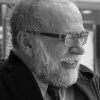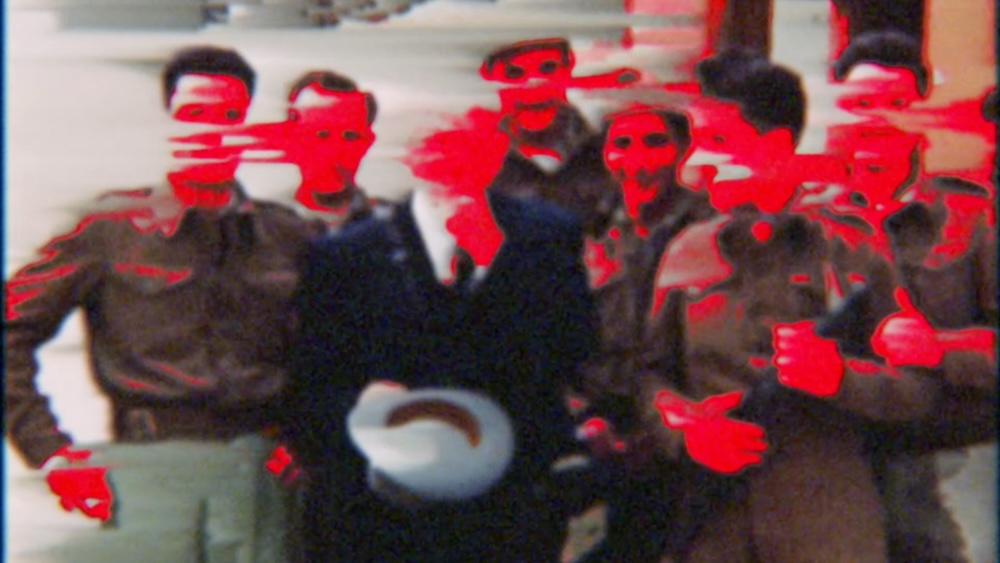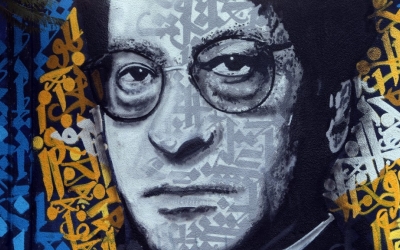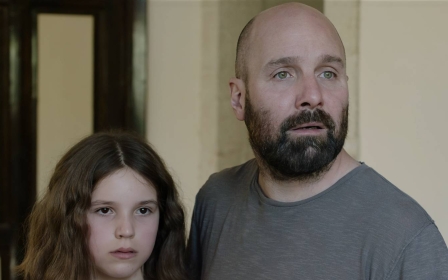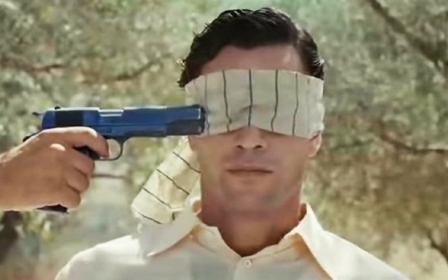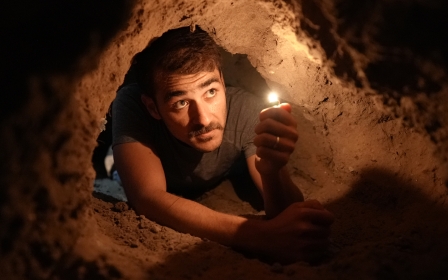How Palestinian director Kamal Aljafari staged a cinematic rebellion
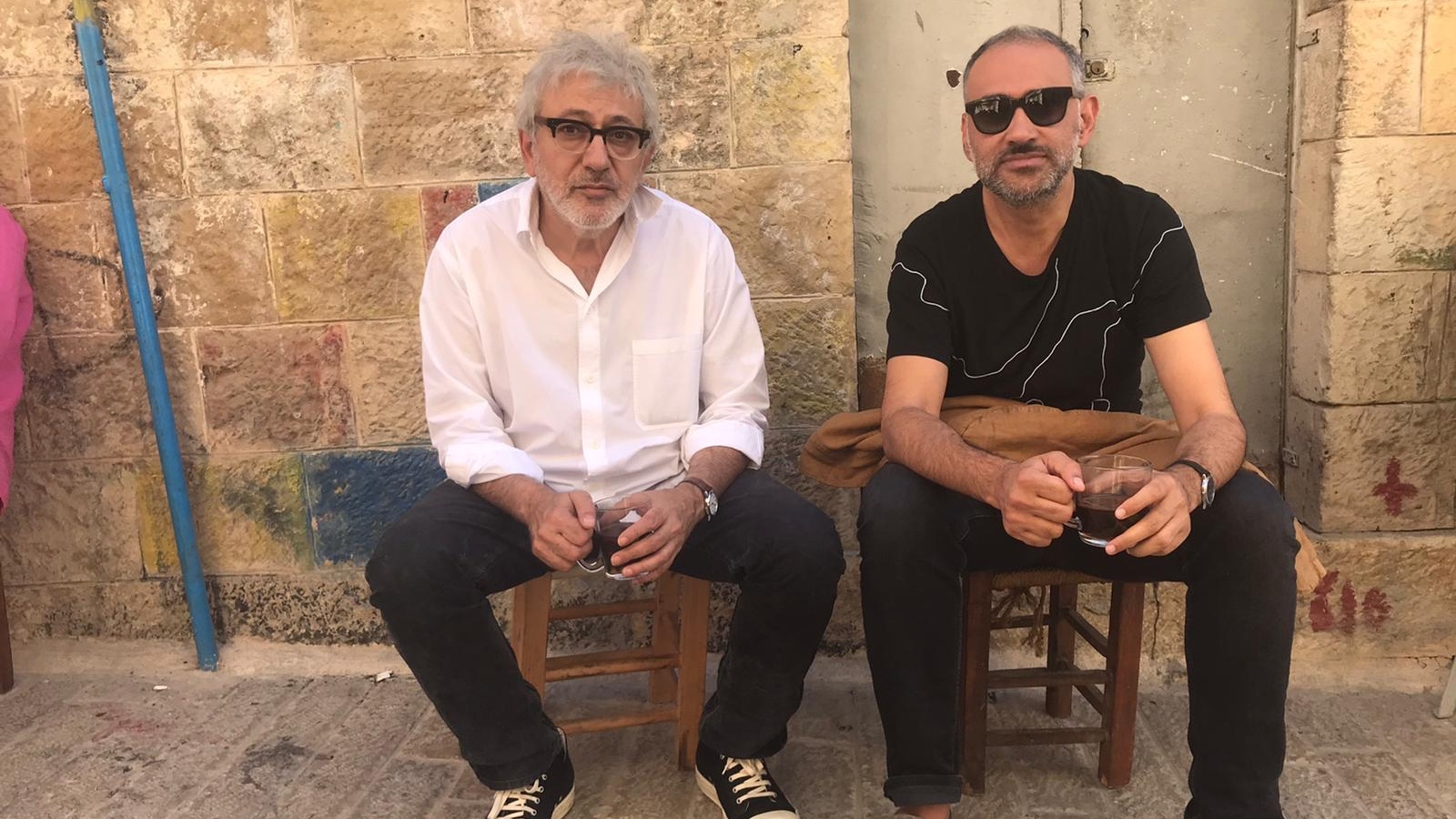
I have been following Kamal Aljafari's unique brand of cinema very closely since its inception early in the 2000s. I was first introduced to his work by Elia Suleiman, the other major Palestinian filmmaker whose career I have followed with much delight and admiration.
Predicated on this initial acquaintance, back in 2016 my colleagues and I invited Aljafari to our Center for Palestine Studies at Columbia University for a detailed conversation about his work. In a wider cinematic context, Aljafari's oeuvre has attracted important critical attention. He is a filmmaker of enormous creativity with a particularly subversive twist to his camera.
From Michel Khleifi and Mai Masri, to Nizar Hassan and Rashid Masharawi, Annemarie Jacir to Hany Abu-Assad and Najwa Najjar - and a whole slew of others in between - there are no two Palestinian filmmakers who are quite alike. In each of their films, they are singularly at work on a vision of their occupied homeland that they refuse to let go of.
Yet what holds these filmmakers together is their common preoccupation with teasing out a cinematic twist on how to reclaim their homeland. Aljafari has his own version of this aesthetic spin on these rebellious politics.
New MEE newsletter: Jerusalem Dispatch
Sign up to get the latest insights and analysis on Israel-Palestine, alongside Turkey Unpacked and other MEE newsletters
Years ago, when I published my edited volume on Palestinian cinema, based on a major film festival we at Columbia organised, I called this political penchant among Palestinian filmmakers as evidence of a "traumatic realism", predicated on the national trauma of dispossession that all Palestinians share.
Like all other Palestinian filmmakers, Aljafari has put his own specific signature on this trauma.
The Palestinian
Born in 1972 and raised in occupied Palestine, in Ramla, Aljafari eventually made his home in Berlin and travelled widely in both the US and the Arab world, studying and teaching cinema as he cultivated his own career with a unique and subversive mode of filmmaking.
Today, in his filmography, we are witness to a trajectory that begins with Visit Iraq (2003) and continues with The Roof (2006), Balconies (2007), Port of Memory (2009), Recollection (2015), It's a Long Way from Amphioxus (2019), An Unusual Summer (2020), Paradiso, XXXI, 108 (2022), and now A Fidai Film (2023).
Even if you were to remove Aljafari's name from the film credits, the evidence still points to this Palestinian filmmaker, who presents a distinct authorial vision not just about his homeland, but also with regard to the craft of filmmaking.
Aljafari uses the very same archive of Israeli propaganda to tease out the evidence of the Palestine they wanted to conceal but paradoxically revealed
As a Palestinian filmmaker, Aljafari stages a cinematic rebellion against an entire history of visual dispossession. Indeed, Israeli theft extends to denying Palestinians the ability to tell their own stories. Israel has stolen the Palestinian archives, hidden them, and made them available only to Israelis - whether their own propaganda officers or historians, scholars, university professors and art curators - of all political stripes.
For Aljafari, it is therefore a battle of archives, and what is a Palestinian to do when systematically denied access to those archives? Well, improvise!
Aljafari is a filmmaker of improvisation. As he explains in an interview in Arabic with the Institute for Palestine Studies (IPS), all his films are, in fact, interrelated through a single mission: to visually present a restored image of Palestine, a task that is inseparable from its physical restoration.
Which is more important: the vision of Palestine or the reality of Palestine? And how exactly are we to tell the difference? Aljafari tells IPS: "For me, the only outlet is to work on the idea of recovering the image, recovering the place, recovering the memory as a whole, not just specific materials or a specific period. For that, I work with the materials found in the archives, and in everything that I obtain. For me, this is the 'camera of the dispossessed'."
The camera of the dispossessed is a uniquely Palestinian phenomenon that has much in common with the most potent political cinema around the world.
The filmmaker
Aljafari's cinematic project is determined by historical facts. He shares with his interlocutor: "In the materials photographed immediately after the occupation of Palestine, in the Galilee, Haifa, Jaffa, and Tiberias, you find the subject of depictions of Jewish fighters, and the place that became theirs. In these scenes, Palestinian figures sneak into the background by chance."
These are the visual relics he retrieves in his cinema, which he presents as part of a unique visual inventory: "These individuals are the ones who remained on the land and were not displaced. I collect these shots and build a new archive. [Palestinians] did not have the ability to take photographs or keep any records, whereas [the Israelis] were the only ones who had such capabilities at the time. Through this work, I discovered nature, places, and exciting history in all of Palestine, from the Negev to the Galilee."
In effect, Aljafari is using the power of his occupiers against them. Israelis had the power to photograph, picture, paint, visualise and conquer the land they stole and colonised. Aljafari uses the very same archive of Israeli propaganda to tease out the evidence of the Palestine they wanted to conceal but paradoxically revealed.
It is the art of reverse reading - an act of deconstructive gesture. This he rightly calls "the camera of the dispossessed". But in the process, he has done something else: he has also documented not just the evidence of his stolen homeland, but also a new way of filming a whole new kind of cinema - the cinema of the negatives. He gets the same negatives and reverses their light and shadows, as it were. What the Israelis have highlighted, he darkens, and what they have shoved into the background, he brings to the foreground; and thus, where they show, he sabotages, and where they hide, he exposes.
His newest picture, A Fidai Film, therefore rests on the idea of loss, focusing on a glaring act of dispossession. As we read in the synopsis of the film:
"In the summer of 1982, the Israeli army occupied Beirut, and soon after, raided the Palestinian Research Centre, tearing it up and carting away its library, containing 25,000 volumes on Palestine. One of the world's largest collections on Palestinian history, this library was housed in the centre's eight-floor building in Beirut. The material was loaded onto trucks and driven to Israel. This wasn't the first time such looting had taken place. Since 1948, and with each new land occupied, archives, images, films, and documents were looted. This film is a sabotage film which creates a counter-image in response to the looting of memories."
Memories, of course, can never be looted; quite the contrary - if triggered and threatened, they aggravate. As a filmmaker, Aljafari is the master of recovering these triggered memories.
The saboteur
Aljafari explains the difficulty of accessing the material he needed to make his latest film. He tells IPS that his objective is "the creation of a counter-image and a counter-archive to the prevailing colonial archive". He refers to contemporary Israeli scholars and curators who, based on the same archival materials, stage their own stories of Palestinians. He compares them to the military officers who initially stole those archives.
Aljafari seeks to turn this absence of stolen archive against itself and thus re-imagine the whole question of archive. Years ago, when I was working on the combined evidence of Iranian revolutionary posters and scattered Palestinian cinematic archive in my book, In Search of Lost Causes (2014), I concluded that no archive is a complete archive; all of them are fragmentary and any claim of a complete archive is merely evidence of fascism. Aljafari's A Fidai Film is a case in point, though he ups the ante and turns the claim to complete archives against itself.
Settler colonies like Israel have an innate anxiety over their own legitimacy, which can never be quieted and reveals itself in their excessive insistence on their massive archive, from Biblical and archaeological to the possession of the land they have stolen in the plain sight of history.
With enormous resources at its disposal, Israel levels this false claim on a total archive. Dispossessed and robbed of their homeland, Palestinians could never make such claims, which is precisely the evidence of the truth of their narrative.
The more emphatic the claim of a total archive, the more it serves as evidence in and of itself to doubt that very claim; and conversely, the more fragile and fragmentary the archive, the more it proves the veracity of its claims.
Through the lens of "the camera of the dispossessed", Aljafari has turned that archival fact into a cinematic aesthetic. What is enduring in his cinema is therefore not just the political power of its aesthetics, but the aesthetic implications of its politics.
The views expressed in this article belong to the author and do not necessarily reflect the editorial policy of Middle East Eye.
Middle East Eye delivers independent and unrivalled coverage and analysis of the Middle East, North Africa and beyond. To learn more about republishing this content and the associated fees, please fill out this form. More about MEE can be found here.


